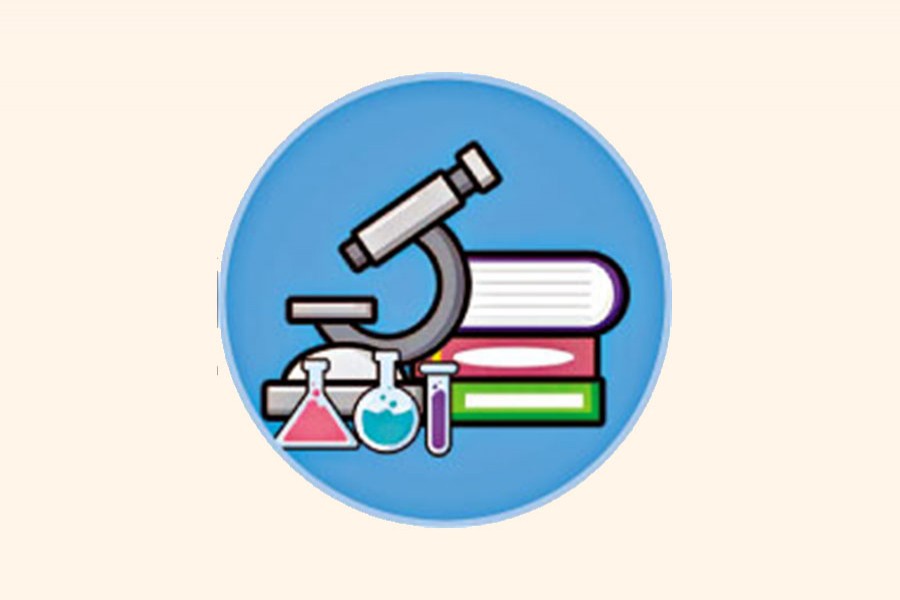
Science has fallen into wrong hands!
SYED FATTAHUL ALIM | Friday, 18 February 2022

After industrial effluents, sewage and plastics, we have now pharmaceutical products polluting rivers and threatening human as well as aquatic life. A study carried out by the University of York on 258 rivers in 104 countries has come up with alarming results. Bangladesh is also one of the countries whose rivers came under this research programme. The concentrations of the different pharmaceutical products, called Active Pharmaceutical Ingredients (APIs), in the rivers vary from place to place depending on the sources of the pollutants of this particular type. Medicine companies, poultry farms, water treatment plants and other such industrial ventures set up in the catchment areas of the rivers release their characteristic products into the rivers.
The kinds of medicinal pollutants found in rivers by the University of York in question, as reported by the BBC, include among others, paracetamol, epilepsy and diabetes drugs, human contraceptives, antibiotics as well as caffeine, nicotine, etc. The rivers most polluted by pharma products include those in Pakistan, Bolivia and Ethiopia, and those least polluted are in Iceland, Norway, a Venezuelan village and the Amazon rainforest, the report further goes. The reason behind a village in Venezuela being unaffected by APIs is the fact that the indigenous people of the area are free from the curses of modern medicines. Amazon rainforest remaining unpolluted is undoubtedly heartening, because it is at least spared the life-changing as well as threatening influence of yet another kind of harmful human intervention in Nature.
It has been found, for example, that the gender of fishes has changed as a result of the presence of contraceptives in river water. Antibiotics consumed by fish and other aquatic animals are only contributing to drug resistance among them giving rise to the bacteria called, superbugs, that no antibiotics invented by medical science so far can defeat. The River Wye that runs through Wales, Herefordshire and Gloucestershire in the UK, for example, has large swathes of algae growth. It is believed by researchers that high phosphate content of the river water is behind the green algae formation harmful for other aquatic lives. The phosphate, many think, can be traced to the runoff from poultry farms in the Wye's catchment areas or from water treatment plants or from septic tanks.
Similarly, large concentrations (three hundred times the accepted level) of antibiotic , metronidazole, have been found in the water samples taken from the rivers in Barishal of Bangladesh under the study. And the source of the pollution by this particular type of API can be traced to drug manufacturing units. Similar is the case with rivers in Lagos of Nigeria. The most frequently found drugs in half of the study sites (some 1000 in number)were anti-epileptic drug, carbamazepine, the anti-diabetes drug, metformin, and caffeine. Notably, the anti-epileptic carbamazepine, is hard to degrade and as such is a serious hazard to unsuspecting users of river water contaminated by the drug. Caffeine, an ingredient of coffee and nicotine, found in cigarettes, both lifestyle consumables, including the painkiller drug, paracetamol, as noted in the foregoing, have been detected in high concentrations in those sites where the most study samples were collected from.
The saddest part of the story is that it is again the low- and middle-income countries that have their rivers most polluted by APIs. As a result, the poor people of these countries are most at risk with this yet another issue burdening these people.
In this way, the curses of modernity are surfacing one after another. Champions of scientific innovation still look very confident that the solutions to all the problems created by industrial civilisation lie again in science. True, ultimately, answers to these manmade new challenges to life and Nature have to be sought in science. But science as such is a very broad subject. For, practically, everything under the sun comes within the purview of science. For instance, weapons of mass destruction like nuclear devices, chemical and biological weapons are all the products of science and technology. So are the various industries and their products like the fossil fuel-driven transports. It is science that is behind all these great inventions. But now these have turned into our existential threat. That, in other words, means, science is like a dumb ass that does what its rider asks it to do.
So, it all depends on how humanity uses science. But who is at the moment controlling science? Obviously, the big research institutions which are financed by the global corporate behemoths. They use their research and development funds to finance such projects as would promise them more profit. They may set aside some of their funds as part of what they term corporate social responsibility (CSR) to address issues like the one under scrutiny. It is like dedicating a miniscule portion of the profits earned by the tobacco industries to treat cancer caused by smoking cigarette. If this is not hypocrisy, then what is? The same is the story of the polluting sectors of the economy financing the fight against pollution. So, there is not much to expect from the science now under corporate control so far as it is about removing hazards to human existence having their origins in the products of science. And, if science is to deliver, its control has to be returned to the people who are not driven by profit motive. Governments and international humanitarian bodies not pandering to the corporate interests can play a decisive role in finding answers to the existential challenges facing humanity. They should also direct more of their funds earmarked for research to private scientific bodies running their programmes to address these manmade crises to Nature and life.